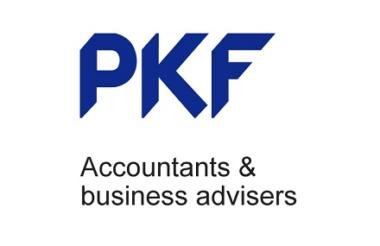Although many charities seek to mitigate the risks of environmental or man-made crises by developing a disaster recovery plan, very few apply the same rationale to the risks associated with fraud. PKF Littlejohn’s Martin Moore looks at how organisations can better prepare themselves for the challenges posed by fraud and misconduct.
When a charity is disrupted through fraud, there is usually a cost attached. Although insurance may be able to cover some of the financial cost, there is little it can do to replace non-monetary assets such as the charity’s reputation in the eyes of its donors, beneficiaries and other important stakeholders. In the worst case scenario, the charity is unable to recover and closes down.
Our extensive research and practical experience suggests that most organisations – including those in the not-for-profit sector - will suffer losses from fraudulent activity at some point. Having a well-developed Fraud Response Plan can significantly reduce the impact of a fraud or other associated acts of criminality committed against the organisation.
What are the benefits of an effective Fraud Response Plan?
An effective Fraud Response Plan should allow a charity to react in a measured, responsive and consistent manner to any allegation of fraud or other criminal conduct of which it becomes aware. The primary goal of the plan is to minimise the economic, reputational, and legal risks that the organisation can face as a result of inappropriate action. Without a plan many of these risks can very easily spiral out of control.
Once the need for an investigation arises, a Fraud Response Plan will help the charity to react as soon as reasonably practicable. Timely investigations are more likely to produce positive results as witnesses recollections are fresh, documents are readily available and evidence is less likely to have been destroyed.
What details should a Fraud Response Plan contain?
A Fraud Response Plan may contain guidance on several or all of the following actions, and should be tailored to fit the charity’s specific needs:
- The level of pre-agreed insurance cover against fraud and whether the costs of an investigation would be recoverable
- The resources that need to be assigned for handling an allegation
- Identifying who will lead the investigation and determining if they have the necessary skills
- The scope of the investigation
- Providing clear and meaningful investigative instructions to deal with evidence collection, witnesses, whistle-blowers, and computer material and analysis
- Consideration of potential legal implications, documentation and evidentiary procedures
- The manner in which management deals with a disclosure made as a result of a whistle-blower alleging potential fraud or other acts of misconduct
- Employment matters, considering the potential dismissal or suspension of the suspect(s) during the investigation
- Consideration of damage assessment – analysing the likely impact on the organisation’s reputation, income streams, employees and suppliers
- Decision making authority for setting objectives, determining if criminal or civil litigation should be pursued, and considering the impact of legal proceedings
- The lines of communication within the organisation
- Regulatory notification, setting out who needs to be made aware of the investigation and when this should this take place
- Consideration of whether the organisation needs to instruct outside specialists
- Media and stakeholder liaison
Who should carry out investigations?
Fraud investigation need to be correctly undertaken - the risks of not following procedures, gathering evidence unlawfully or breaching the subject’s rights can all lead to evidence being ruled inadmissible, a case failing at an employment tribunal or criminal court, and costs and damages being awarded against the organisation.
An investigation that follows a properly constructed plan can mitigate against many of these pitfalls, help to more accurately identify losses, and can assist with the identification of assets for recovery. A measured response can also help to counter reputational damage by sending a strong message that the charity will not tolerate criminal activity in its ranks. An organisation that is seen to be slow to react and has no constructive plan is unlikely to win back the confidence of its stakeholders.
Martin Moore is a senior manager in the Forensic and Counter Fraud Services group at PKF Littlejohn.
Civil Society Media would like to thank PKF Littlejohn for their support with this article









